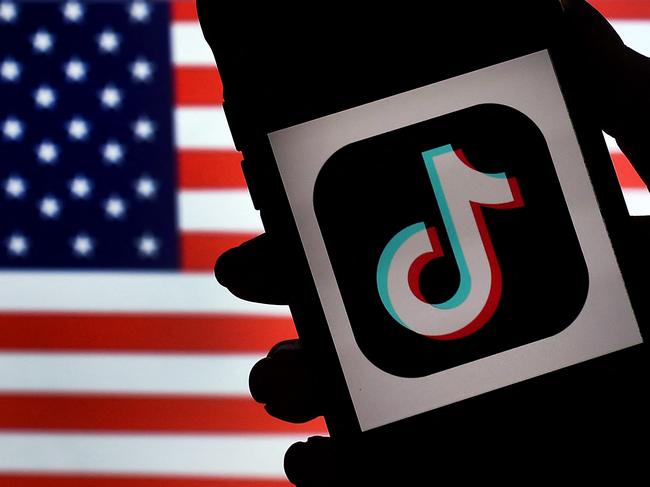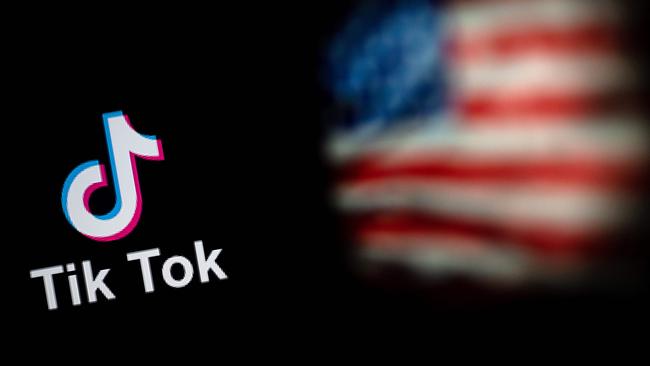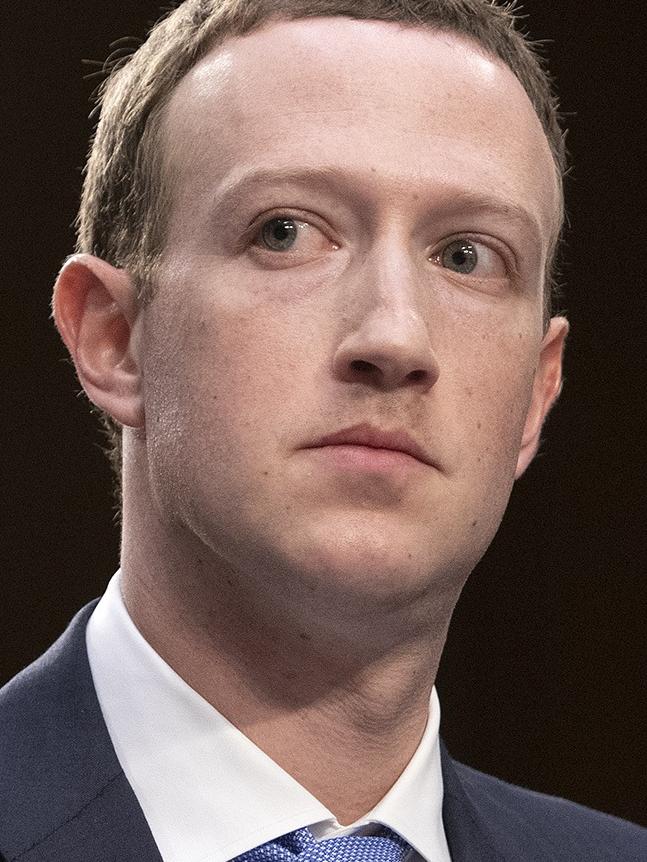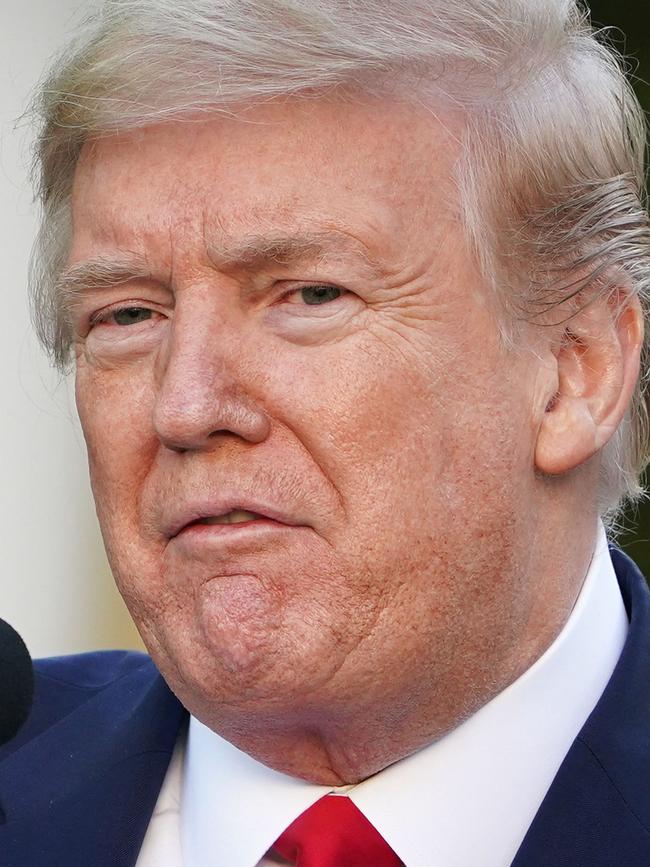‘TikTok ban’ House bill passes in US
The US House have approved a bill that could lead to the banning of TikTok in America, but China warned that the move will “inevitably come back to bite the United States”.
Social
Don't miss out on the headlines from Social. Followed categories will be added to My News.
The US House of Representatives overwhelmingly approved a bill on Wednesday local time that would force TikTok to divest from its Chinese owner or be banned from the United States.
The legislation is a major setback for the video-sharing app, which has surged in popularity across the world while causing nervousness about its Chinese ownership and its potential subservience to the Communist Party in Beijing.
The politicians voted 352 in favour of the proposed law and 65 against, in a rare moment of unity in politically divided Washington.

“Today’s bipartisan vote demonstrates Congress’ opposition to Communist China’s attempts to spy on and manipulate Americans, and signals our resolve to deter our enemies,” Republican House Speaker Mike Johnson said after the vote.
“I urge the Senate to pass this bill and send it to the President so he can sign it into law,” he added.
But the fate of the bill is uncertain in the more cautious Senate, where some key figures are apprehensive of making such a drastic move against an app that has 170 million US users.
President Joe Biden will sign the bill, known officially as the Protecting Americans from Foreign Adversary Controlled Applications Act, into law if it came to his desk, the White House has said.
“This process was secret and the bill was jammed through for one reason: it’s a ban,” said a spokesman for TikTok in a statement.
“We are hopeful that the Senate will consider the facts, listen to their constituents, and realise the impact on the economy, seven million small businesses, and the 170 million Americans who use our service,” the spokesman added.
The measure, which only gained momentum in the past few days, requires TikTok’s parent company ByteDance to sell the app within 180 days or see it barred from the Apple and Google app stores in the United States.
It also gives the president power to designate other applications to be a national security threat if they are under the control of a country considered adversarial to the US.
The renewed campaign against TikTok came out of the blue to the company, the Wall Street Journal reported, with TikTok executives reassured when Biden joined the app last month as part of his campaign for a second term.
TikTok CEO Shou Zi Chew is in Washington, trying to stop progress on the bill.
China warned on Wednesday local time that the move will “inevitably come back to bite the United States”.
“Although the United States has never found evidence that TikTok threatens US national security, it has not stopped suppressing TikTok,” foreign ministry spokesman Wang Wenbin said, condemning it as “bullying behaviour.”
Republican politicians approved the bill, in an unusual act of defiance against former US President Donald Trump.
In a turnaround from his earlier stance, Mr Trump on Monday said he was against a ban, mainly because it would strengthen Meta, the owner of Instagram and Facebook, which he called an “enemy of the people”.
When Trump was president, he attempted to wrest control of Tiktok from ByteDance, but was blocked by US courts.
“I think it will die in the Senate,” said representative Nancy Mace, a Trump ally. “This is not our job to do this.”
Other efforts to ban TikTok have failed, with a bill proposed a year ago getting nowhere largely over free speech concerns.
Similarly, a state law passed in Montana banning the platform was suspended by a federal court on the suspicion that it violated constitutional free speech rights.
TikTok staunchly denies any ties to the Chinese government and has restructured the company so the data of US users stays in the country with independent oversight, the company says.
TRUMP OPPOSED TO BAN
Earlier this week, Mr Trump said he still believes TikTok poses a national security risk but is opposed to banning the hugely popular app because doing so would help its rival, Facebook, which he continues to lambaste over his 2020 election loss.
In a call-in interview with CNBC’s “Squawk Box”, Mr Trump was asked about his comments last week that seemed to voice opposition to a bill being advanced by Congress that would effectively ban TikTok and other ByteDance apps from the Apple and Google app stores as well as US web hosting services.
“Frankly, there are a lot of people on TikTok that love it. There are a lot of young kids on TikTok who will go crazy without it,” Mr Trump said.
“There’s a lot of good and there’s a lot of bad with TikTok. But the thing I don’t like is that without TikTok you’re going to make Facebook bigger, and I consider Facebook to be an enemy of the people, along with a lot of the media.”
“When I look at it, I’m not looking to make Facebook double the size,” he said.
“I think Facebook has been very bad for our country, especially when it comes to elections.”

Mr Trump has repeatedly complained about Facebook’s role during the 2020 election, which he still refuses to concede he lost to President Joe Biden.
That includes at least $400 million that its founder, Mark Zuckerberg, and his wife donated to two non-profit organisations that distributed grants to state and local governments to help them conduct the 2020 election at the height of the Covid-19 pandemic.
The donations – which were fully permitted under campaign finance law – went to pay for things such equipment to process mail ballots and drive-through voting locations.
TikTok, a video-sharing app, has emerged as a major issue in the 2024 presidential campaign. The platform has about 170 million users in the US, most of whom skew younger – a demographic that both parties are desperately trying to court ahead of November’s general election.


Younger voters have become especially hard for campaigns to reach as they gravitate away from traditional platforms like cable television.
Mr Biden’s 2024 campaign officially joined TikTok last month, even though he has expressed his own national security concerns over the platform, banned it on federal devices and on Friday endorsed the legislation that could lead to its ban.
The bill passed unanimously by the US House Energy and Commerce Committee calls on China’s ByteDance to divest its ownership of TikTok or effectively face a US ban.
Top Republicans, including House Speaker Mike Johnson, support the bill. Johnson has indicated it will soon come up for a full vote in the House.
As president, Mr Trump attempted to ban TikTok through an executive order that called “the spread in the United States of mobile applications developed and owned by companies in the People’s Republic of China (China)” a threat to “the national security, foreign policy and economy of the United States.”
The courts, however, blocked the action after TikTok sued, arguing such actions would violate free speech and due process rights.
Asked whether he still believed the app posed a national security risk, Mr Trump said: “I do believe it. And we have to very much go into privacy and make sure that we are protecting the American people’s privacy and data rights.”
“But,” he went on to say, “you have that problem with Facebook and lots of other companies, too.”

Some American companies, he claimed, are “not so American. They deal in China. And if China wants anything from them they will give it. So that’s a national security risk also.”
Mr Biden in 2022 banned the use of TikTok by the federal government’s nearly 4 million employees on devices owned by its agencies, with limited exceptions for law enforcement, national security and security research purposes.
He also recently signed an executive order that allows the Department of Justice and other federal agencies to take steps to prevent the large-scale transfer of Americans’ personal data to what the White House calls “countries of concern,” including China.
Both the FBI and the Federal Communications Commission have warned that TikTok owner ByteDance could share user data – such as browsing history, location and biometric identifiers- with China’s authoritarian government.
TikTok said it has never done that and wouldn’t do so if asked. The US government also hasn’t provided evidence of that happening.
Mr Trump had first voiced support for the app in a post on his Truth Social site last week.
“If you get rid of TikTok, Facebook and Zuckerschmuck will double their business. I don’t want Facebook, who cheated in the last Election, doing better,” he wrote.
“They are a true Enemy of the People!”
Mr Trump, in the interview, said he had not discussed the company with Jeff Yass, a TikTok investor and a major GOP donor. Mr Trump said the two had recently met “very briefly” but that Yass “never mentioned TikTok.”
Mr Trump also confirmed he met last week with Elon Musk, the billionaire CEO of Tesla and SpaceX who has increasingly aligned himself with conservative politics.
Mr Trump said he didn’t know whether Musk would end up supporting his campaign, noting they “obviously have opposing views on a minor subject called electric cars,” which Mr Trump has railed against.
More Coverage
Originally published as ‘TikTok ban’ House bill passes in US




